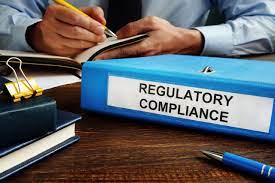
In the intricate world of private fund management, navigating regulatory compliance remains a paramount concern. With an ever-evolving landscape shaped by economic, political, and technological changes, fund managers must stay abreast of current regulations to mitigate risks and ensure the seamless operation of their funds. This article delves into the key areas of concern for private fund managers, integrating up-to-date news, statistics, and insights from industry thought leaders.
The first step in managing compliance is understanding the current regulatory landscape. Regulations such as the Dodd-Frank Act in the United States, the Alternative Investment Fund Managers Directive (AIFMD) in Europe, and other regional laws provide frameworks for fund operations, investor protection, and market stability. Compliance with these regulations requires a thorough understanding of their provisions and the ability to adapt to changes swiftly.
Recent Changes and Challenges
Recent years have seen significant regulatory changes. In 2023, the U.S. Securities and Exchange Commission (SEC) introduced new rules affecting private fund advisers, focusing on transparency and investor protection. Similarly, the European Union continues to refine its regulations in response to Brexit and the evolving financial landscape.
The COVID-19 pandemic has also brought new challenges, with regulators paying closer attention to risk management and operational resilience. Fund managers must understand these changes and their implications on compliance strategies.
Managers are subject to stringent ongoing obligations with respect to both their accounting and internal audits. — Salvador Ruiz Bachs
Starting in 2023, companies face a considerable increase in standardized ESG disclosure rules and standards from a number of jurisdictions. This growing kaleidoscope of obligations means companies will face increasing demands for high quality data disclosure not just from stakeholders but regulators
Navigating regulatory compliance in private fund management is a complex but essential task. By understanding the regulatory landscape, addressing key concerns with actionable strategies, and staying informed through thought leader insights and current news, fund managers can effectively manage compliance risks. The dynamic nature of this field requires ongoing vigilance and adaptability, ensuring that funds not only comply with current regulations but are also prepared for future changes. Remember, in the world of private fund management, compliance is not just a legal obligation; it's a cornerstone of trust and success.
You may also be interested in: Resources | Zive - Fund Admin for Emerging Managers
Get A Demo and experience Zive in action with a complimentary, no-obligation session tailored to your business needs.






